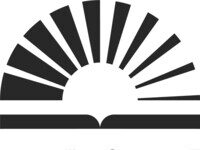 Amazon has just rolled out it’s new Kindle Unlimited program changes that will take effect on July 1.
Amazon has just rolled out it’s new Kindle Unlimited program changes that will take effect on July 1.
Under the current program, Kindle Unlimited subscribers/readers can borrow books via a subscription program. Authors are then paid a percentage (less than an actual sale of the book) but a small percentage. Under this new program that would end. While Amazon will still get their subscription payments from readers enrolled in the program, authors could be waiting a long time for royalty checks. Under the new guidelines, if readers do not open and read the book they’ve downloaded as part of their subscription to Kindle Unlimited, there will be no payment made to the author.
These new rules will likely see many authors opting out of the popular lending program. Readers will have fewer titles to ‘borrow’, and authors will have another venue for finding new readers closed.
Amazon said in their press release regarding these changes: “We’re making this switch in response to great feedback we received from authors who asked us to better align payout with the length of books and how much customers read. Under the new payment method, you’ll be paid for each page individual customers read of your book, the first time they read it.”
Highlights of the new changes:
- Borrows will be displayed as PAGES instead of BORROWS. The number of will appear on the report where the “borrow” appears now. Authors will not be shown the number of borrowers of a particular title, only the number of pages read in each one.
- Pages read will be shown as they are read and synced, authors will get paid for those during the next payment period.
- Page averages will be done using the new “KENPC” system beginning July 1.
- An author will only get paid for pages that are read once. If a reader goes back to re-read a page, it does not count.
- When a reader borrows, the sales rank does goes up, If the reader does not open and read the book, the author will not get paid.
- Authors will now be offered the opportunity to opt out of Kindle Unlimited, without the 90-day restriction period.
DETAILS FROM AMAZONS WEBSITE
Kindle Unlimited Pages Read
As with our current approach, we’ll continue to set a KDP Select Global Fund each month. Under the new payment method, the amount an author earns will be determined by their share of total pages read instead of their share of total qualified borrows.
Here are some examples of how it would work if the fund was $10M and 100,000,000 total pages were read in the month:
- The author of a 100 page book that was borrowed and read completely 100 times would earn $1,000 ($10 million multiplied by 10,000 pages for this author divided by 100,000,000 total pages).
- The author of a 200 page book that was borrowed and read completely 100 times would earn $2,000 ($10 million multiplied by 20,000 pages for this author divided by 100,000,000 total pages).
- The author of a 200 page book that was borrowed 100 times but only read halfway through on average would earn $1,000 ($10 million multiplied by 10,000 pages for this author divided by 100,000,000 total pages).
We will similarly change the way we pay KDP Select All-Star bonuses which will be awarded to authors and titles based on total KU and KOLL pages read.
You can enroll in KDP Select at any time by visiting your Bookshelf. If you no longer want your book(s) to be included in KDP Select you may unenroll from the program bycontacting us with the ASIN of the book you would like to remove.
Kindle Edition Normalized Page Count (KENPC v1.0)
To determine a book’s page count in a way that works across genres and devices, we’ve developed the Kindle Edition Normalized Page Count (KENPC). We calculate KENPC based on standard settings (e.g. font, line height, line spacing, etc.), and we’ll use KENPC to measure the number of pages customers read in your book, starting with the Start Reading Location (SRL) to the end of your book. Amazon typically sets SRL at chapter 1 so readers can start reading the core content of your book as soon as they open it.
This standardized approach allows us to identify pages in a way that works across genres and devices. Non-text elements within books including images, charts and graphs will count toward a book’s KENPC.
When we make this change on July 1, 2015, you’ll be able to see your book’s KENPC listed on the “Promote and Advertise” page in your Bookshelf, and we’ll report on total pages read on your Sales Dashboard report. Because it’s based on default settings, KENPC may vary from page counts listed on your Amazon detail page, which are derived from other sources.
Reporting
After this change, you’ll be able to view your Kindle Unlimited (KU) and Kindle Owners’ Lending Library (KOLL) Pages Read in your Sales Dashboard report by marketplace and title.
We’ll continue to update this Help page with more information on your KDP reports, KU/KOLL royalties, and KDP Select Global Fund payouts as the changes roll out.






